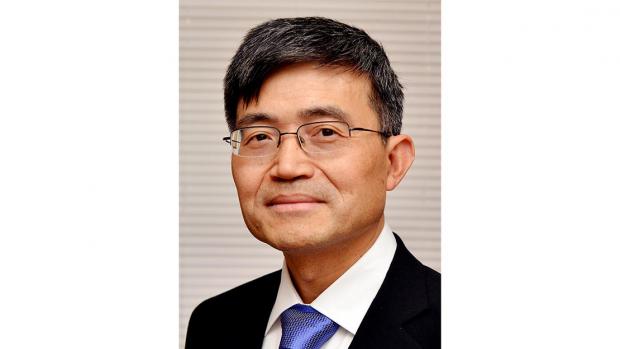Zhong-Ping Jiang’s research is wide-ranging — and award-winning

NYU Tandon’s annual Excellence in Research Award is bestowed upon a faculty member who has published in prestigious journals, mentored students, been recognized by professional societies, and conducted important translational research, and this year the honor went to Professor of Electrical and Computer Engineering Zhong-Ping Jiang, who is also an affiliated member of Tandon’s Center for Advanced Technology in Telecommunications (CATT) and the Connected Cites for Smart Transportation (C2SMART) Center.
Jiang’s research interests lie at the interface of control and learning for network systems and have practical applications to connected and autonomous vehicles, robotic networks, cyber-physical systems, and many other areas.
Among the varied research that caught the attention of the award judges:
- An NSF-funded project to study how the nervous system works under uncertain conditions and develop robust adaptive dynamic programming as a theory of human sensorimotor learning and control — with an end goal of helping clinicians devise new ways to diagnose and treat neurodegenerative diseases such as Parkinson’s and Huntington’s.
- A Department of Transportation backed effort to develop safe and robust automated lane-changing technology that will encompass interactions between vehicles, complex routing choices, and interactions between vehicles and the environment — a project that could greatly increase road safety, since, as Jiang points out, a tenth of all accidents are caused by inappropriate, illegal, or misjudged lane changes.
- A project done in connection with the DOE’s Oak Ridge National Laboratory that aims to apply artificial intelligence-based modeling and control using real-time data to construct an AI-based closed-loop coordinated signal control system for multiple intersections, along with routing strategies for the smooth distribution of traffic flows — a complex undertaking since traffic flow systems are dynamic and nonlinear, and subject to randomness.
- An NSF-funded collaboration that resulted in a mathematical model specifically for New York City’s unique social and transportation structures and aided health and government leaders in making smart, up-to-date testing and contact-tracing decisions during the COVID-19 crisis.
- Another NSF-funded collaboration, this one with wide applications in the field of marine robotics. Jiang’s aim is to provide mathematical control theory and algorithms for systems of nonlinear differential equations that are prone to uncertainties, which arise in control engineering from unknown model parameters or incomplete information about the systems' states or their surroundings. His ultimate goal is to minimize operational costs and satisfy tolerance and safety requirements. (His fellow researchers at Louisiana State University have designed underwater vehicle controls and manipulators for use with physical marine robotic platforms in the Mississippi River, but while their work will give oceanographers a better understanding of a vital part of our ecosystem, they expect their methods to eventually apply in other important engineering settings prone to uncertainties, such as renewable energy networks).
- A newly awarded project, backed by the NSF RINGS Program and in collaboration with Professors Yong Liu and Shiv Panwar and Dr. Pei Liu, to create resilient next-generation wireless networks that will enable secure, robust, and high-performance applications in many increasingly critical domains, including education, business, transportation, and healthcare
The Excellence in Research Award is just the latest in his long list of honors, which include an NSF CAREER Award; fellowships in the Institute of Electrical and Electronics Engineers, the International Federation of Automatic Control, and the Academia Europaea (Academy of Europe), among such organizations; and numerous best-paper and young-author prizes.




